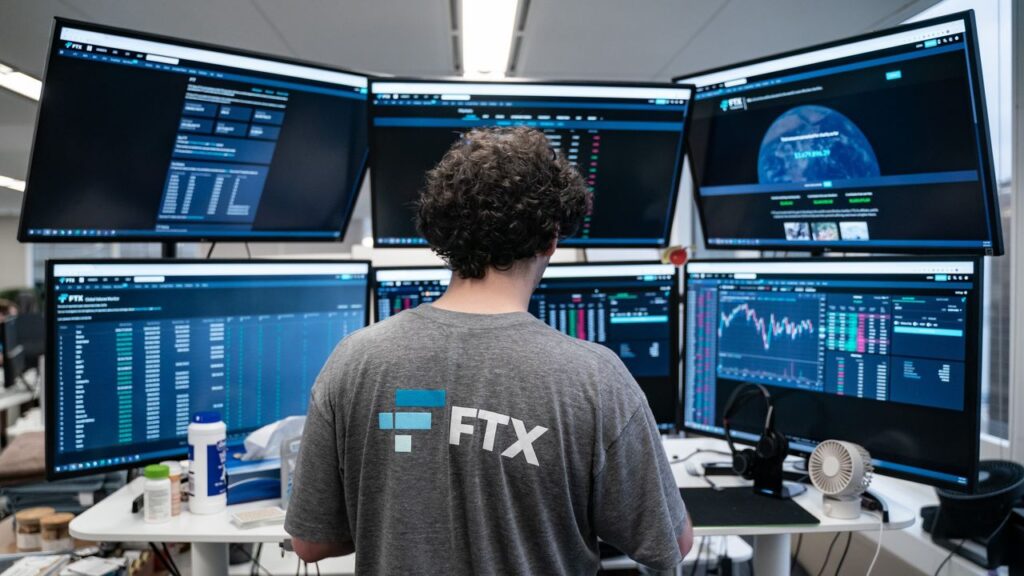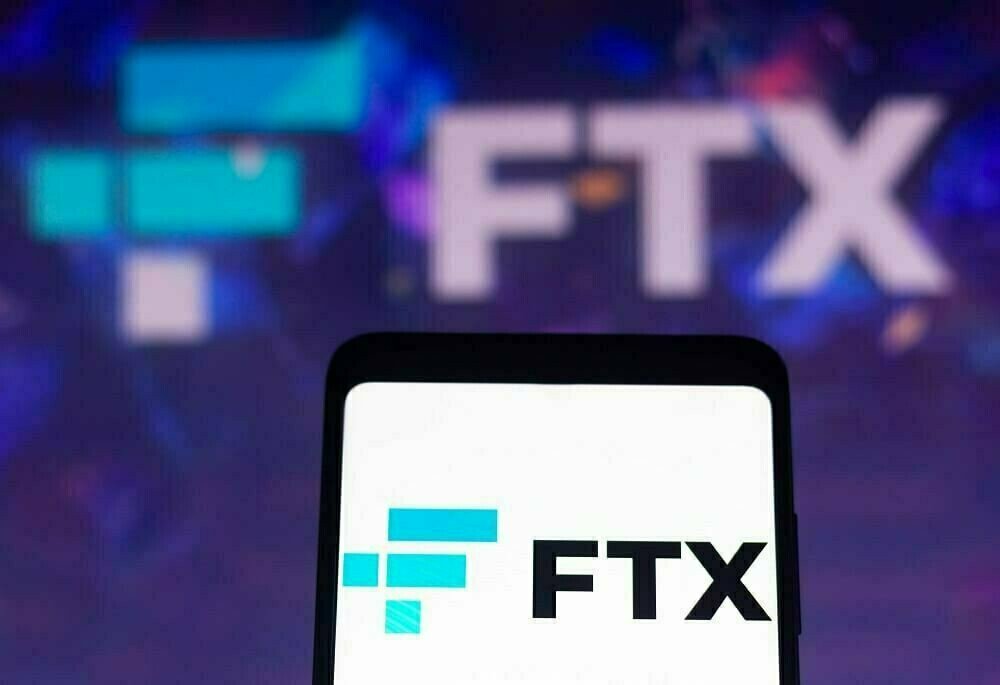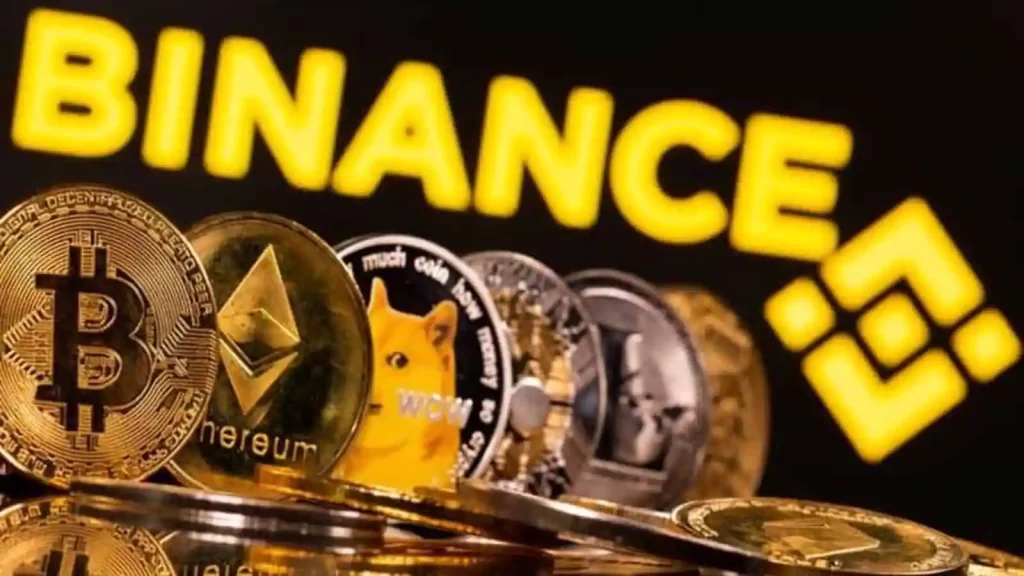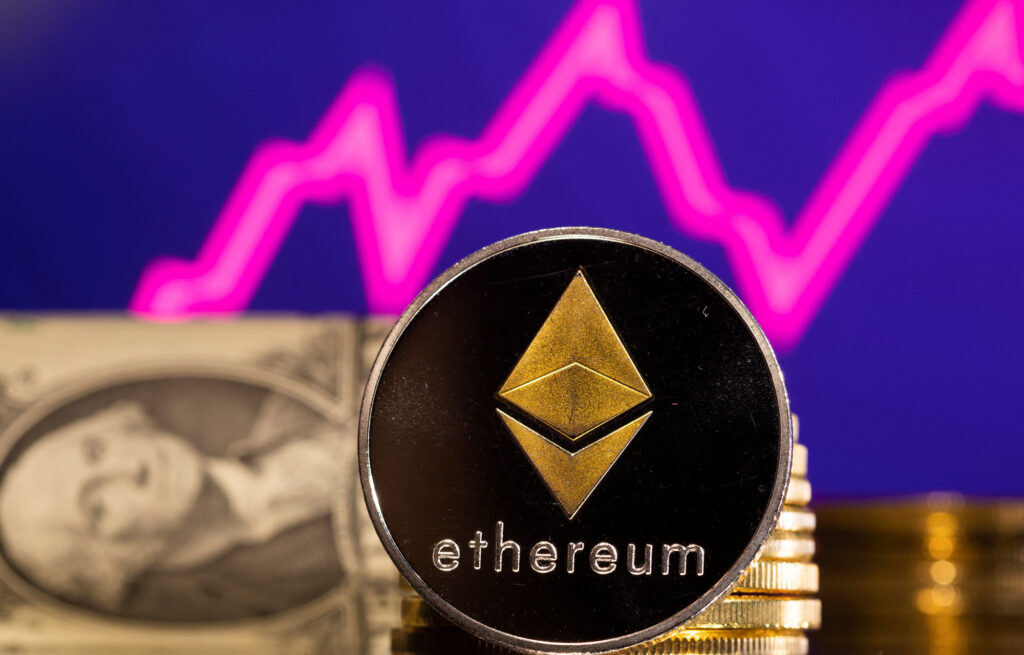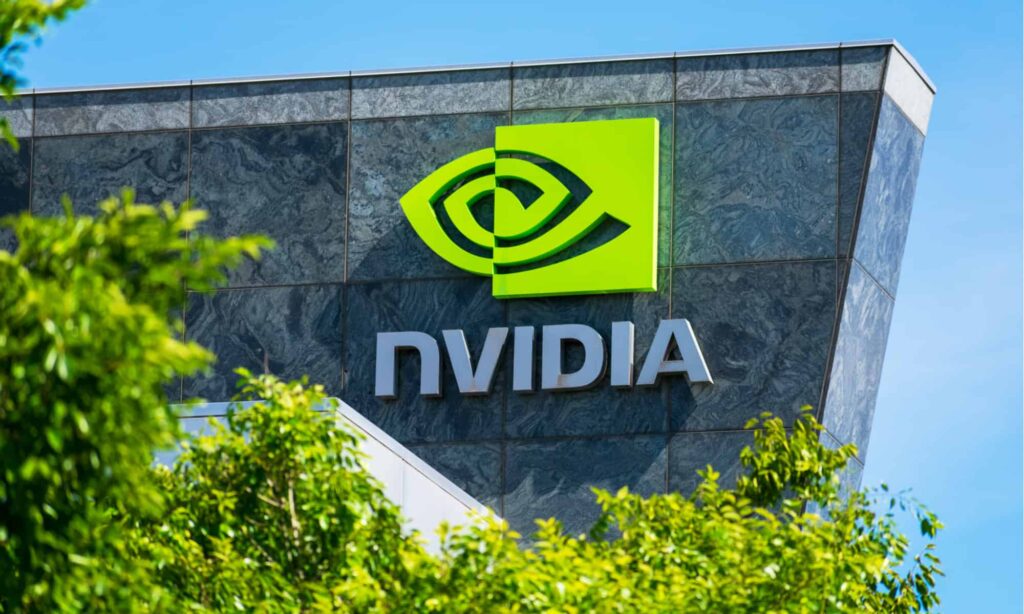In the lead-up to its eventual collapse in November 2022, crypto exchange FTX was ensnared in a web of increasingly perilous decisions, fueled by the ideology of effective altruism, according to a former software engineer at Alameda Research, Aditya Baradwaj.
Just days before FTX founder Sam “SBF” Bankman-Fried’s trial on October 3, Baradwaj provided insights into the role this philosophy played in the demise of the company, shedding light on his experiences working under the former billionaire.
Effective altruism, which encourages individuals to amass wealth to later donate for the greater good, took hold at FTX, gradually shifting the decision-making process towards irrationality.
Baradwaj remarked, “This ideology was used to justify increasingly risky and ridiculous actions that, honestly, should have been looked at with a saner mind.”
Despite being prevalent in Silicon Valley and quantitative finance circles, effective altruism led to a skewed perspective at FTX and Alameda Research.
Baradwaj highlighted the allure of the ideology, saying, “All of us at the company had this vision of, ‘I think altruism is good, and I think doing things effectively is good.’
So, you put these things together, and it’s like, ‘Obviously this thing is good.'”
However, he emphasized the danger when this philosophy turns into a means-to-an-end mentality, especially when the ends are bizarre and irrational.
READ MORE: Space and Time Integrates Its Proof of SQL Verifier Into Chainlink Nodes
Under the guise of effective altruism, Bankman-Fried made substantial donations to prevent pandemics and combat malaria in developing nations.
He was also a major donor to the Democratic party but later admitted to contributing to Republicans as well.
Notably, he even proposed paying Donald Trump $5 billion not to run for president in 2024, claiming it was to “protect democracy,” as revealed by Big Short author Michael Lewis in a recent interview.
Despite allegations that Bankman-Fried hid behind a fabricated altruistic persona, Baradwaj maintained that the former FTX founder genuinely believed in his mission.
He described Bankman-Fried as highly motivated and trustworthy, which may explain his staunch denial of the charges pressed against him.
Baradwaj reflected on Bankman-Fried’s possible mindset, stating, “Maybe he does genuinely believe that what he did was fine, or he actually believes that he did nothing wrong.”
He emphasized the importance of the truth and expressed hope that the trial would provide clarity on the events that transpired, leaving many questions unanswered.
Other Stories:
Google Cloud Joins Polygon Network as Validator, Boosting Blockchain Security
SEC Delays Decision on Spot Bitcoin ETF Proposals Amid Looming Government Shutdown
Venture Capital Firm Paradigm Criticizes SEC’s Unconventional Approach in Binance Case
The Department of Justice (DOJ) has confirmed its plan to summon former FTX clients, investors, and staff as witnesses in the upcoming trial involving Sam Bankman-Fried, the former CEO of FTX.
In a letter motion submitted on September 30, the DOJ outlined its intention to call witnesses who can shed light on FTX’s handling of customer assets.
These testimonies aim to provide insights into the interactions between the accused and the witnesses and to gauge the witnesses’ understanding of Bankman-Fried’s statements and actions, particularly concerning FTX’s asset management.
The DOJ seeks to emphasize the experiences of both retail and institutional clients who entrusted substantial assets to FTX with the belief that their assets would be securely safeguarded.
However, a complication has arisen regarding one of the DOJ’s witnesses, identified as “FTX Customer-1,” who resides in Ukraine.
Given the ongoing conflict in Ukraine, the prospect of traveling to the U.S. to testify poses significant challenges.
To address this, the DOJ has proposed using video conferencing as a viable alternative, although Bankman-Fried’s defense has not yet approved this proposal.
Meanwhile, Bankman-Fried’s legal team, led by attorney Mark Cohen, has raised concerns about the jury questions presented by the DOJ.
Bankman-Fried’s defense argues that these inquiries could imply guilt on his part, potentially undermining the fundamental principle of “innocent until proven guilty.”
Furthermore, they assert that these questions may not effectively uncover potential biases among jurors, particularly concerning their familiarity with cryptocurrencies.
Specific questions could inadvertently influence the jury’s perspective rather than eliciting genuine insights, potentially compromising the trial’s impartiality.
As the jury selection is scheduled to commence on October 3, followed closely by the trial, all eyes are on this high-stakes legal showdown.
The proceedings will not only scrutinize the actions of Sam Bankman-Fried but also the integrity of the legal process itself, as both the prosecution and defense grapple with issues related to witness testimony and jury questions.
The outcome of this trial is eagerly anticipated by the cryptocurrency community and the broader financial industry.
Other Stories:
New U.S. Bill Proposes Enhanced Oversight for Cryptocurrency Transactions
French Authorities Conduct Surprise Raid on Nvidia’s Offices Amid Antitrust Inquiry
NFT Artist Raises £114,000 at Edinburgh Charity Event to Support Cancer Treatment
In recent updates shared by Spot On Chain, it has been revealed that an address associated with the FTX exploit, known as 0x3e9, has been actively involved in transferring over 10,000 Ether, with an estimated value of approximately $17 million, across five distinct addresses since September 30th.
Remarkably, these addresses had lain dormant for an extended period before the sudden resurgence of activity.
Notably, a significant portion of the aforementioned 10,000-plus Ether, valued at around $13 million, found its way to the THORChain router and Railgun contract.
Additionally, the exploit operator conducted a swap involving 2,500 ETH, equivalent to approximately $4.19 million, converting it into 153.4 tBTC tokens at an average rate of $27,281 per token.
It’s worth recalling that the initial hack on September 30th resulted in losses nearing 50,000 ETH, causing significant concern within the crypto community.
These developments have unfolded amidst the crypto market’s anticipation of the launch of Ethereum futures ETFs scheduled for October 2nd.
READ MORE: New U.S. Bill Proposes Enhanced Oversight for Cryptocurrency Transactions
Looking beyond the exploits and market developments, legal proceedings involving prominent FTX founder Bankman-Fried have garnered attention.
The trial, expected to span six weeks, is set to commence with jury selection on October 3rd, followed by initial court proceedings on October 4th.
Bankman-Fried is facing seven charges related to fraudulent activities, encompassing two substantive charges and five conspiracy charges.
Throughout the legal proceedings, Bankman-Fried has staunchly maintained his innocence, pleading not guilty to all allegations.
Despite numerous attempts to secure temporary release, he remains in custody, with Judge Lewis Kaplan recently denying his most recent request for release due to concerns about the potential flight risk posed by the defendant.
In light of these ongoing developments, the crypto community continues to monitor the evolving situation closely, with both market dynamics and legal outcomes poised to have far-reaching implications.
Other Stories:
French Authorities Conduct Surprise Raid on Nvidia’s Offices Amid Antitrust Inquiry
NFT Artist Raises £114,000 at Edinburgh Charity Event to Support Cancer Treatment
The World Federation of Exchanges (WFE) has highlighted the growing potential of crypto-asset trading platforms (CTPs) in contributing to the broader economy and society.
In a paper released on September 28, the WFE emphasized the need for regulation to enhance the appeal and legitimacy of these platforms.
One of the primary principles proposed by the WFE is the segregation of functions within CTPs to prevent conflicts of interest, a concern echoed by Gary Gensler, the Chairman of the United States Securities and Exchange Commission.
Until CTPs adhere to these standards, the WFE recommends that they refrain from referring to themselves as exchanges.
The WFE also expressed concerns about the integration of distributed ledger technology (DLT) into traditional financial (TradFi) exchanges it represents.
Regulators are urged to consider the mutual benefits of this integration, rather than stifling regulated institutions from offering crypto asset services, potentially pushing such activities into less-regulated spaces.
Regarding decentralized finance (DeFi), the WFE noted that although it operates differently from traditional and centralized finance (TradFi and CeFi), the distinctions are not as pronounced as they might seem. DeFi platforms, where buyers and sellers interact, inherently possess central elements.
The WFE pointed out that even the Ethereum Merge, which transitioned the network from proof-of-work to proof-of-stake, was largely driven by a centralized team at the Ethereum Foundation.
READ MORE: Fornite Developer Cuts 16% of Workforce Amid Metaverse Revenue Shortfall
Consequently, the WFE suggested regulating DeFi on the level of decentralized applications (DApps) rather than at the protocol level.
Furthermore, the WFE commended the Financial Action Task Force (FATF) for its efforts to extend Know Your Customer (KYC) regulations, commonly referred to as the “travel rule,” to the crypto sector.
It also endorsed the International Organization of Securities Commissions (IOSCO) Principles for Secondary and Other Markets, aiming to elevate standards in crypto markets.
In summary, the WFE believes that CTPs have the potential to become significant contributors to the real economy and society.
However, to realize this potential, adherence to regulatory principles is essential.
The organization also underscores the need to balance innovation and regulation while acknowledging the interconnectedness of DeFi with centralized elements.
Finally, the WFE supports the application of KYC regulations and the elevation of market standards in the crypto industry.
Other Stories:
Marathon Digital Mines Invalid Bitcoin Block in Experiment, Network Resilience Proves Robust
Chinese Consultant Fined $144,907 for Unauthorized VPN Use
Do Kwon Requests Extradition Denial Amidst SEC Investigation
The United States Securities and Exchange Commission (SEC) has initiated legal proceedings against accounting firm Prager Metis, which had previously provided services to the cryptocurrency exchange FTX before the exchange’s declaration of bankruptcy.
According to an official statement released on September 29th, the SEC alleges that Prager Metis failed to maintain the necessary independence while offering auditing services to its clients, which is in violation of the auditor independence framework.
To prevent conflicts of interest, accounting and audit functions are required to be kept separate.
The SEC claims that these intertwined activities took place over a span of nearly three years, constituting a significant breach of fundamental auditing principles.
The statement underscores the critical importance of auditor independence in safeguarding investor interests.
While the SEC’s statement does not explicitly mention FTX or any other specific clients, it highlights that there were allegedly “hundreds” of violations of auditor independence throughout the three-year period in question.
This suggests a widespread problem within Prager Metis’ practices.
A previous court filing disclosed that FTX Group had engaged Prager Metis to audit its subsidiaries, FTX US and FTX, at some point in 2021. Subsequently, FTX declared bankruptcy in November 2022.
The filing argued that Prager Metis should have recognized that FTX would use their audit results to build public trust, especially after former FTX CEO Sam Bankman-Fried had publicly disclosed previous audit outcomes.
Concerns had been previously raised about the content presented in FTX’s audit reports.
On January 25th, FTX’s current CEO, John J. Ray III, expressed substantial concerns regarding the information presented in the audited financial statements during a bankruptcy court proceeding.
Senators Elizabeth Warren and Ron Wyden had also voiced concerns about Prager Metis’ impartiality, suggesting that the firm had operated more as an advocate for the cryptocurrency industry.
Meanwhile, another entity involved with FTX, U.S.-based law firm Fenwick & West, has recently faced legal challenges.
In a court filing dated September 21st, plaintiffs alleged that Fenwick & West should bear partial responsibility for FTX’s collapse due to its alleged excessive service offerings to the exchange.
However, Fenwick & West contends that it cannot be held accountable for a client’s misconduct as long as its actions remain within the bounds of its representation of the client.
This legal dispute further complicates the aftermath of FTX’s bankruptcy declaration and raises questions about the responsibilities of service providers in such cases.
Other Stories:
French Authorities Conduct Surprise Raid on Nvidia’s Offices Amid Antitrust Inquiry
NFT Artist Raises £114,000 at Edinburgh Charity Event to Support Cancer Treatment
New U.S. Bill Proposes Enhanced Oversight for Cryptocurrency Transactions
On September 29th, Polygon Labs made a significant announcement, revealing that Google Cloud had joined the Polygon proof-of-stake network as a validator.
This development marked a significant milestone for Polygon, as Google Cloud brought its extensive expertise and resources to the table.
As part of this collaboration, Google Cloud joined a diverse group of over 100 validators responsible for verifying transactions on Polygon’s layer-2 Ethereum network.
This move showcased Google Cloud’s commitment to supporting the growth and security of blockchain technology.
In a statement shared on the X platform (formerly known as Twitter), Polygon Labs expressed their enthusiasm for this partnership, highlighting that the same infrastructure powering platforms like YouTube and Gmail would now contribute to the security and efficiency of the Ethereum-based Polygon protocol.
Validators play a crucial role in maintaining the integrity of the Polygon network by operating nodes, staking MATIC tokens, and participating in the proof-of-stake consensus mechanism.
READ MORE: Marathon Digital Mines Invalid Bitcoin Block in Experiment, Network Resilience Proves Robust
The Google Cloud Singapore account officially confirmed its role as a validator on the Polygon proof-of-stake network, emphasizing its dedication to enhancing the network’s security, governance, and decentralization.
Notably, Google Cloud joined the ranks of other prominent validators, including Deutsche Telekom, one of Europe’s largest telecommunications firms.
Google Cloud described its collaboration with Polygon Labs as an ongoing strategic partnership, indicating a long-term commitment to blockchain technology. In tandem with this announcement, Google Cloud Asia Pacific released a YouTube video titled “Polygon Labs is solving for a Web3 future for all,” further underscoring their dedication to the Web3 ecosystem.
Polygon Labs had recently initiated “Polygon 2.0,” aimed at updating and enhancing the Polygon network.
This multi-phase project, with “Phase 0” being the current focus, involves several Polygon Improvement Proposals (PIPs). PIP 17 stands out as it involves transitioning from the MATIC token to the new POL token.
PIPs 18 and 19 address essential aspects like the technical description of POL and the update of gas tokens.
These changes are scheduled to be implemented in the fourth quarter of 2023, reflecting Polygon’s commitment to continuous improvement and innovation within the blockchain space.
Other Stories:
Fornite Developer Cuts 16% of Workforce Amid Metaverse Revenue Shortfall
Chinese Consultant Fined $144,907 for Unauthorized VPN Use
Do Kwon Requests Extradition Denial Amidst SEC Investigation
Paradigm, a prominent venture capital firm, has voiced strong criticism against the United States Securities and Exchange Commission (SEC) for what it perceives as a deviation from standard rulemaking procedures in its current legal action against the cryptocurrency exchange giant, Binance.
In a statement released on September 29th, Paradigm accused the SEC of attempting to reshape the legal landscape by leveraging the allegations in its complaint against Binance to effect changes in the law without adhering to established rulemaking processes.
Paradigm firmly contends that the SEC is overstepping its regulatory boundaries and vehemently opposes this unconventional approach.
The SEC initiated legal proceedings against Binance in June, alleging multiple violations of securities laws, including operating without the required registration as an exchange, broker-dealer, or clearing agency.
Paradigm emphasized that the SEC has been pursuing similar cases against various cryptocurrency exchanges lately, raising concerns that the SEC’s stance “could fundamentally reshape our comprehension of securities law in several critical aspects.”
Furthermore, Paradigm expressed reservations about the SEC’s application of the Howey test, a legal standard used to determine whether transactions qualify as investment contracts subject to securities regulations.
READ MORE: Do Kwon Requests Extradition Denial Amidst SEC Investigation
Paradigm’s amicus brief argued that many assets are actively marketed, purchased, and traded based on their profit potential. Despite this, the SEC has consistently exempted them from being classified as securities.
Paradigm cited examples such as gold, silver, and fine art, underscoring that the mere potential for value appreciation does not inherently classify their sale as a security transaction.
In a related development, Circle, the issuer of USD Coin (USDC), has entered the fray of the ongoing legal dispute between Binance and the SEC.
Circle firmly contends that stablecoins should not be categorized as securities by the SEC.
They argue that individuals who acquire stablecoins are not doing so with the intention of deriving profits, thereby challenging the SEC’s attempt to regulate these assets as securities.
In summary, Paradigm’s criticism of the SEC centers on the agency’s unconventional approach to legal action against Binance, which they believe goes beyond established rulemaking procedures and could have far-reaching implications for the cryptocurrency and securities landscape.
Meanwhile, Circle has joined the legal dispute, asserting that stablecoins should not be treated as securities by the SEC due to their distinct nature and use cases.
Other Stories:
Fornite Developer Cuts 16% of Workforce Amid Metaverse Revenue Shortfall
Chinese Consultant Fined $144,907 for Unauthorized VPN Use
Marathon Digital Mines Invalid Bitcoin Block in Experiment, Network Resilience Proves Robust
Nearly a year has passed since the infamous FTX hack, which saw cybercriminals abscond with a staggering $600 million in tokens.
However, on Saturday, September 30, 2023, on-chain data unveiled intriguing activity within the perpetrator’s wallet, identified as 0x3e957.
This revelation unfolds in close proximity to the imminent launch of an Ethereum-based ETF in the United States.
Spot On Chain, a reliable source for on-chain data, has recently detected a resurgence in activity emanating from the exploiter’s address.
Currently, this enigmatic wallet contains a substantial treasure trove of $16.75 million worth of Ether.
Further examination of the data exposes two significant transactions involving the movement of 2,500 ETH each, a combined value of $4 million.
Such transfers often correlate with selling activities, which could potentially exert downward pressure on the price of Ether, thereby impacting smaller investors.
Conversely, there is a tantalizing prospect that the price of ETH could embark on a bullish trajectory in the near future, coinciding with the launch of several Ethereum exchange-traded funds (ETFs) within the United States.
READ MORE: Marathon Digital Mines Invalid Bitcoin Block in Experiment, Network Resilience Proves Robust
Multiple companies are eagerly awaiting the approval of the U.S. Securities and Exchange Commission (SEC), which is poised to make a momentous decision on October 2.
If granted, this decision could greenlight up to nine ETF products, facilitating unprecedented access to Ethereum for mainstream investors.
The convergence of these developments is poised to inject significant volatility into the Ethereum market.
Investors and enthusiasts alike are keenly observing the situation, gauging the potential impact on ETH prices and the broader cryptocurrency landscape.
The lingering specter of the FTX hack, with its audacious $600 million heist, continues to cast a shadow over the crypto world, serving as a stark reminder of the importance of security and vigilance in this rapidly evolving digital frontier.
As we approach the fateful SEC decision date, the crypto community braces itself for the possible repercussions, hoping that the launch of Ethereum-based ETFs can bring not only increased accessibility but also stability and legitimacy to the world of cryptocurrencies in the United States.
Other Stories:
Do Kwon Requests Extradition Denial Amidst SEC Investigation
Fornite Developer Cuts 16% of Workforce Amid Metaverse Revenue Shortfall
Nvidia, a global powerhouse in artificial intelligence (AI) chip manufacturing with its headquarters in California, found itself at the center of attention this week as French law enforcement conducted an unexpected raid on its offices.
This move is part of a broader investigation by French antitrust authorities into the cloud computing sector, as reported by The Wall Street Journal on September 28. So far, neither Nvidia nor French enforcement agencies have officially disclosed details about the incident.
A press release on the website of the French antitrust agency, Autorité de la Concurrence, mentions an unannounced inspection focused on the graphics cards sector.
The agency obtained a judicial authorization for this action based on suspicions of Nvidia’s involvement in “anticompetitive practices in the graphics cards sector.”
Notably, the agency emphasizes that the raid does not automatically imply the existence of a legal violation attributable to the company.
This development comes in the wake of Autorité de la Concurrence’s extensive analysis of the cloud computing sector, which culminated in a report published in June 2023.
Notably, this report did not explicitly mention Nvidia but instead concentrated on major tech giants like Amazon Web Services, Google Cloud, and Microsoft Azure.
According to the agency’s findings, these three hyper-scalers accounted for a staggering 80% of the spending growth in public cloud infrastructures and applications in France during 2021.
The agency expressed concern about the market power wielded by these companies and their potential to stifle competition.
READ MORE: Hypothekarbank Lenzburg Joins SDX: Swiss Bank Expands Digital Asset Presence
To address this issue, Autorité de la Concurrence is exploring various avenues under national competition laws and the European Data Act to counteract this monopolistic trend.
Nvidia has attracted the regulators’ scrutiny due to its unique role as a hardware provider to some of the most cutting-edge segments of the digital industry.
Notably, Nvidia’s recent quarterly report revealed that United States regulators had requested the company to limit the export of AI chips to “certain Middle East countries.”
However, the U.S. Department of Commerce later denied this information, adding a layer of complexity to Nvidia’s ongoing interactions with regulatory bodies.
In summary, Nvidia’s encounter with French authorities underscores the growing regulatory scrutiny faced by tech giants operating in the AI and cloud computing sectors, particularly those with a significant influence on the digital landscape.
The outcome of this investigation will likely have ramifications not only for Nvidia but also for the broader tech industry as it navigates complex antitrust and competition concerns.
Other Stories:
Crypto Trader’s Cross-Country Journey Ends in Seattle: A Bitter Twist of Fate
Binance Completes Exit from Russian Market, Sells Operations to CommEX
Major Cryptocurrency Exchange Bitspay Faces Scrutiny Over Alleged Fake License Claims
A new legislative proposal has surfaced in the United States that seeks to enhance oversight and transparency within the cryptocurrency industry. U.S.
Representative Don Beyer unveiled the “Off-Chain Digital Commodity Transaction Reporting Act” on September 28.
This groundbreaking legislation mandates that cryptocurrency service providers report all blockchain transactions to a government-designated repository registered with the Commodity Futures Trading Commission (CFTC).
The primary objective of this legislation is to safeguard cryptocurrency investors from potential disputes, manipulation, or fraudulent activities arising from transactions conducted off-chain or beyond the purview of the blockchain network.
Unlike on-chain transactions that are instantaneously recorded on the blockchain, off-chain cryptocurrency transactions traverse secondary layers, making tracking and monitoring more challenging.
This issue has gained prominence due to the proliferation of trading platforms that aim to expedite transaction processing times while reducing costs.
Thousands of transactions now occur “off-chain,” eluding public visibility on the blockchain.
Representative Beyer emphasized the discrepancies in internal record-keeping among these private entities, underscoring the vulnerability of investors and consumers to fraudulent practices.
READ MORE: Binance Completes Exit from Russian Market, Sells Operations to CommEX
In his statement, Representative Beyer articulated the legislation’s purpose: “This bill is a common-sense measure to restore some transparency and confidence to the digital asset market.”
According to the bill’s provisions, cryptocurrency service providers will be obliged to report all off-chain transactions within a 24-hour window to a CFTC-registered trade repository.
Notably, these requirements parallel the rules governing “virtually all securities and swaps transactions.”
This legislative move reflects a broader trend of U.S. lawmakers actively addressing cryptocurrency regulations.
In mid-September, nine U.S. senators threw their support behind Senator Elizabeth Warren’s Digital Asset Anti-Money Laundering Act, which was reintroduced in July 2023.
The bill seeks to clamp down on noncustodial digital wallets and extend the responsibilities outlined in the Bank Secrecy Act to tackle the illicit use of digital currencies.
These collective efforts underscore the growing recognition of the need for robust regulatory frameworks to govern the cryptocurrency space and protect the interests of investors and consumers alike.
Other Stories:
Hypothekarbank Lenzburg Joins SDX: Swiss Bank Expands Digital Asset Presence
Major Cryptocurrency Exchange Bitspay Faces Scrutiny Over Alleged Fake License Claims
Crypto Trader’s Cross-Country Journey Ends in Seattle: A Bitter Twist of Fate



